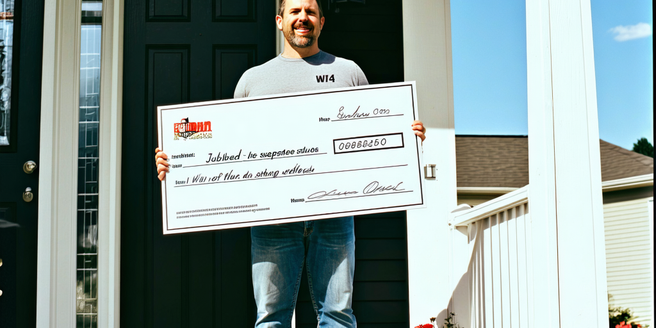
Understanding the Appeal of Sweepstakes
Sweepstakes are popular because they promise a risk-free chance of winning something valuable or desirable. This allure taps into the human tendency to dream about ‘what could be.’ Unlike lotteries or gambles where investment is necessary, sweepstakes offer participation at no cost, which lowers the barrier to entry. The simplicity and accessibility of entering these contests make them appealing to a broad audience. Moreover, the minimal effort required fuels the illusion of ‘may as well try,’ encouraging participation even from those who may not believe they stand a good chance. The excitement of the draw coupled with the social buzz they generate appeal to the innate human attraction to taking chances and the universal desire for unexpected reward, turning the dream of winning into a momentary reality every participant savors.
The Role of Dopamine in Anticipation
Dopamine, a neurotransmitter, plays a critical role in the feeling of anticipation associated with sweepstakes. When individuals participate in sweepstakes, the mere thought of potentially winning triggers the brain’s reward pathways. This leads to the release of dopamine, creating a pleasurable sensation linked to anticipation. This reaction reinforces the behavior by making future participation deemed desirable. Furthermore, the unpredictability of outcomes in sweepstakes amplifies this effect, as the brain craves novelty and potential rewards. The anticipation of maybe winning, even when the odds are slim, becomes addictive, driving repeated participation. The bursts of dopamine not only spark moments of joy but also fuel optimism and hope, encouraging individuals to keep trying with each new opportunity despite previous losses.
Emotional Drivers of Participation
Emotion is a powerful motivator behind sweepstakes participation. The thrill of possibly winning something that requires little effort taps into the human desire for positive emotional experiences. The excitement inherent in merely entering a sweepstakes gives an immediate emotional lift, providing a quick escape from routine daily life. This anticipatory happiness fuels the ‘what if I win’ daydreams, making the experience rewarding even before results are known. Additionally, winning serves as a validation boost, providing an emotional payoff that can enhance one’s self-esteem. The possibility of sharing winnings with others adds a social connection element, further enhancing the emotional satisfaction linked to participation. As emotions significantly influence decision-making, they heighten appeal and increase the likelihood of individuals participating multiple times, seeking that emotional high.
Cognitive Biases Influencing Decisions
Cognitive biases play a significant role in influencing decisions when it comes to entering sweepstakes. One such bias is the optimism bias, which leads people to overestimate their chances of winning. Despite the low odds, the idea that ‘someone has to win and it could be me’ prevails, bolstered by past winners’ testimonies and highlighted success stories. Another relevant cognitive bias is the availability heuristic, where the frequency and recency of hearing about or seeing sweepstakes winners skew perceptions of winning likelihood. Additionally, the mere exposure effect, where repeated exposure increases liking, encourages participation. Complementing these is the anchoring effect, where initial prize values set expectations for rewards. Collectively, these biases shape behavior and can make entering sweepstakes seem more rational than it statistically is, guiding decisions in favor of participating.
The Impact of Scarcity and Urgency Tactics
Scarcity and urgency tactics powerfully impact consumer decisions, activating the desire to act quickly before missing out. Sweepstakes often use limited-time offers or exclusive entry conditions, creating a sense of urgency that compels immediate action. The fear of missing out (FOMO) is leveraged, heightening the perceived value of participation. Scarcity, by signaling limited availability, enhances desirability, making the reward appear more valuable. Coupled with urgency, it emphasizes the necessity of acting swiftly to secure ‘winning’ chances. These strategies tap into primal instincts where scarce resources should be seized promptly to assure survival or gain. This psychological manipulation drives a reactive impulse to engage in sweepstakes, ensuring potential entrants feel a pressing need to act, lest the opportunity slip away, increasing overall participation rates.
